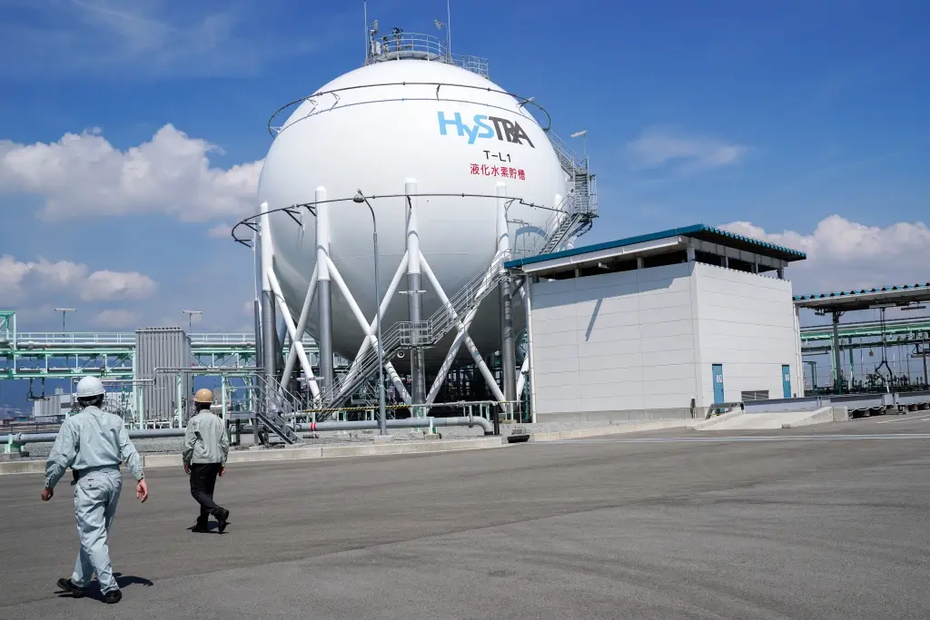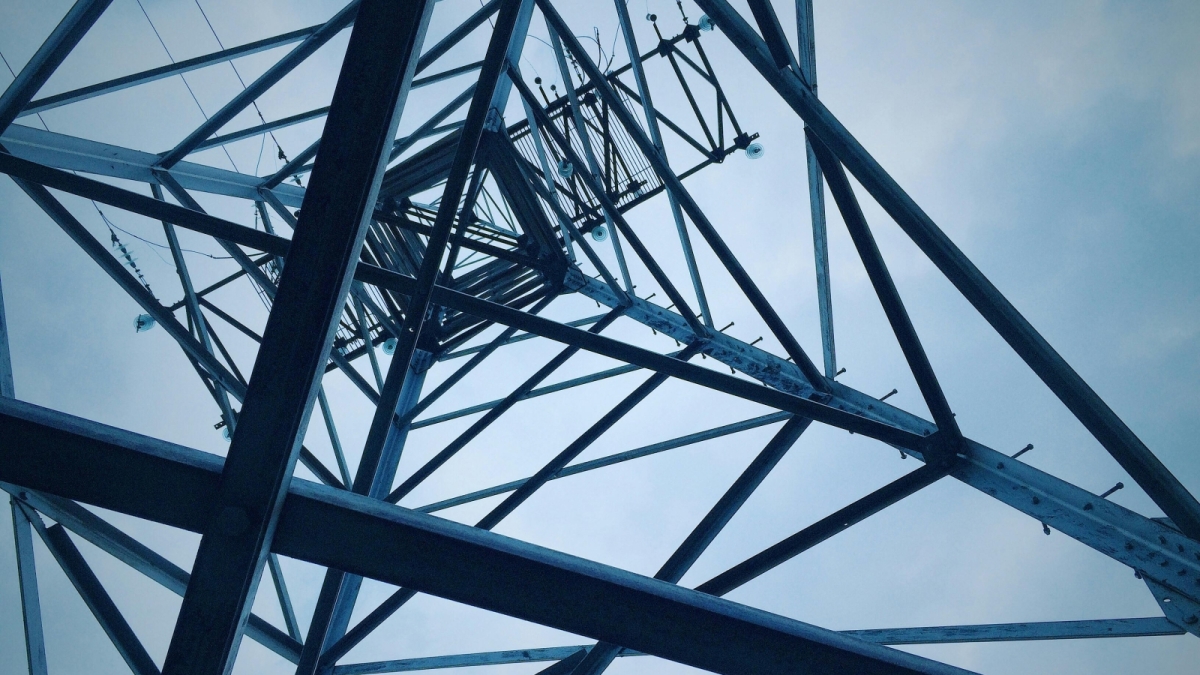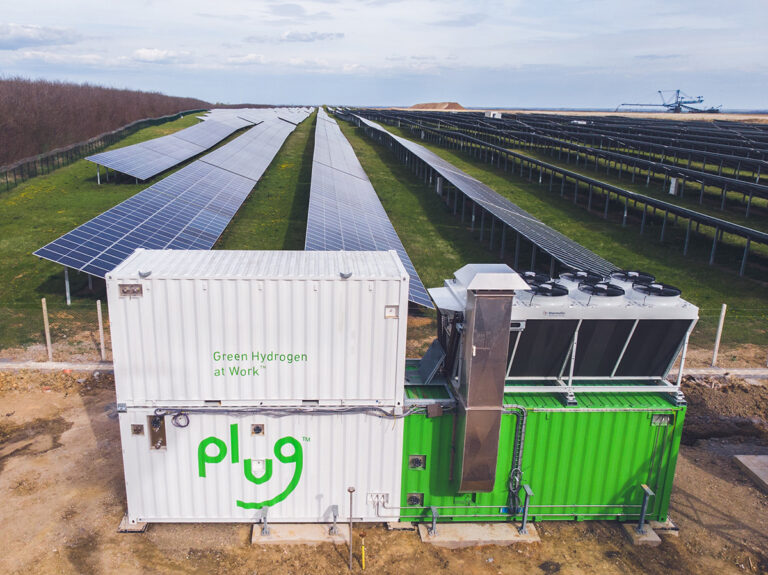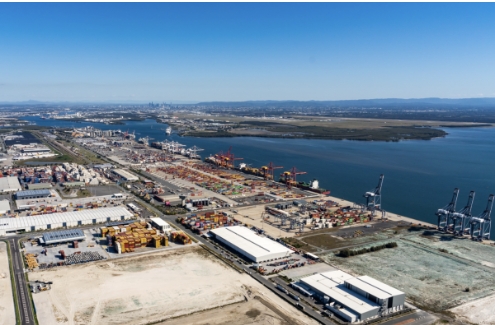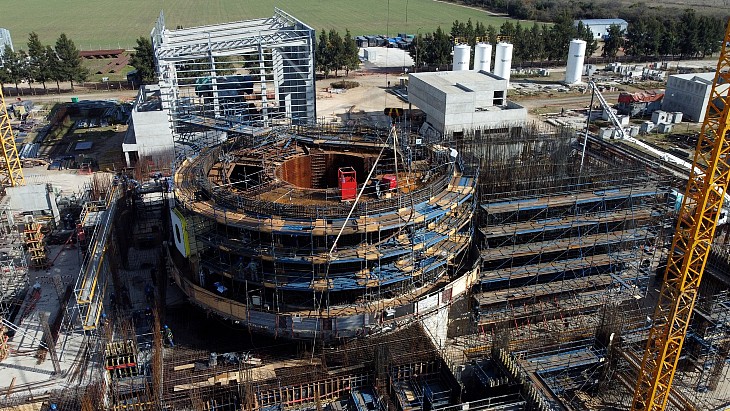
Lavalle, in an interview with EconoJournal, said that having a review of the CAREM reactor was a normal occurrence in innovative projects and "the group of experts has already been defined and they are starting to work ... we gave them a maximum period of 60 consecutive days, I hope it is less. The group of experts has to identify those aspects that require a review or redesign, in particular the most innovative aspects of the reactor".
Asked what impact the review might have on the work already taking place, he said that it would not impact the civil works and would be focused on the engineering systems, "basically the things that go inside the reactor which are not yet manufactured ... the review can say 'look it's worth making this modification, doing these measurements, or doing these tests'". He added that he understood the responsibility involved in investing public funds and in ensuring the project comes to fruition. He said that the project could be open to private sector funding if a potential partner wanted to join the project
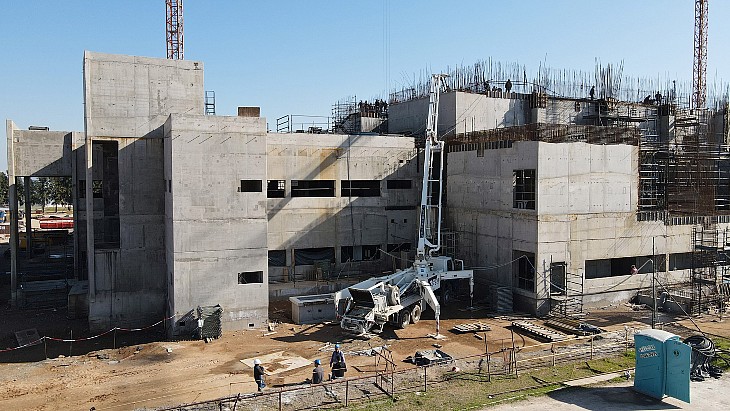
Civil works taking place in August 2023 (Image: CNEA)
There have been questions raised about funding for nuclear projects in Argentina since the election of President Javier Milei in December with a plan to boost the country's economy by cutting government spending and rebalancing the state's finances, including by privatising some state entities. According to a Reuters report of an interview with previous CNEA head, Adriana Serquis, earlier this month, the organisation's budget had been held at 2023 levels, despite annual inflation at times nearing 300% and this had led to some suppliers and contractors being forced to halt work on the CAREM construction.
In his EconoJournal interview, Lavalle said that the entire public sector was in a similar situation of having 2023 budgets because congress had yet to approve a 2024 budget, and said discussions were continuing with the economy minister, with some "favourable messages" received. He said that the RA-10 multipurpose reactor and the Argentine Proton Therapy Centre projects were also priorities, and highlighted the potential for technology company spin-offs from CNEA's work, saying "all large universities or science and technology organisations put a lot of focus on this, understanding that it generates not only money for the institution but a good return for society to have these companies and have them succeed".
In October last year, the National Atomic Energy Commission and Nucleoeléctrica Argentina signed a framework agreement for technical assistance for the country's CAREM project. First concrete was poured for the prototype reactor in February 2014, marking the official start of its construction. However, the project was suspended on a number of occasions, including from November 2019 for two years before restarting. In October 2022, CNEA said that civil construction works were expected to be finished in 2024, with initial criticality expected by the end of 2027.
The CAREM name is taken from Central Argentina de Elementos Modulares. The 32 MWe prototype is Argentina's first domestically designed and developed nuclear power unit. At least 70% of the components and related services for CAREM-25 are to be sourced from Argentine companies. The commercial model ultimately envisaged by CNEA as the basis of a multi-reactor plant would have a higher power of between 100 and 120 MWe.
When it is up and running, RA-10 will have the capacity to cover 20% of world demand for the radioisotope molybdenum-99, from which technetium is obtained, and it will also be possible to produce other radioisotopes that are not made in the country, such as lutetium, used to treat prostate cancer and other pathologies. The new facility will allow the targets that are irradiated in the RA-10 reactor to be processed on an industrial scale and obtain sustained production of both radioisotopes and, in export terms, will put the country on a similar level to the Netherlands, Belgium, South Africa, Russia and Australia.


